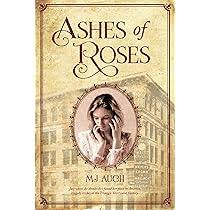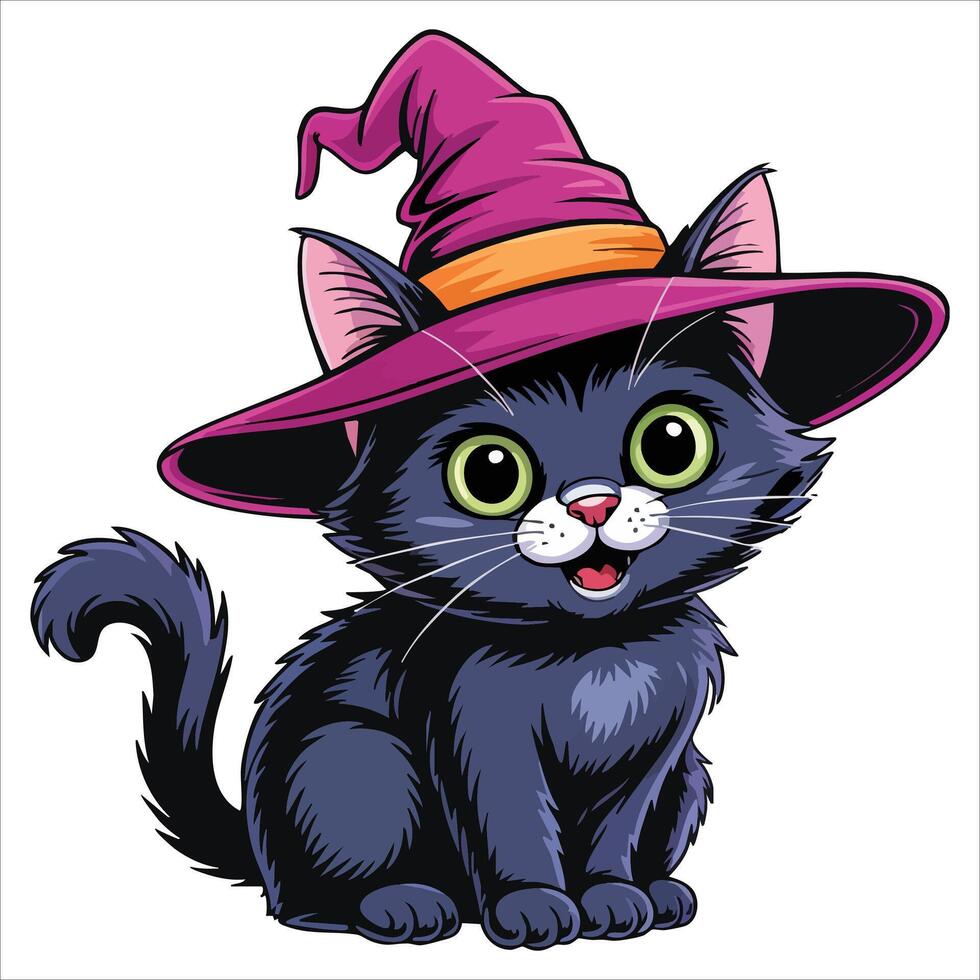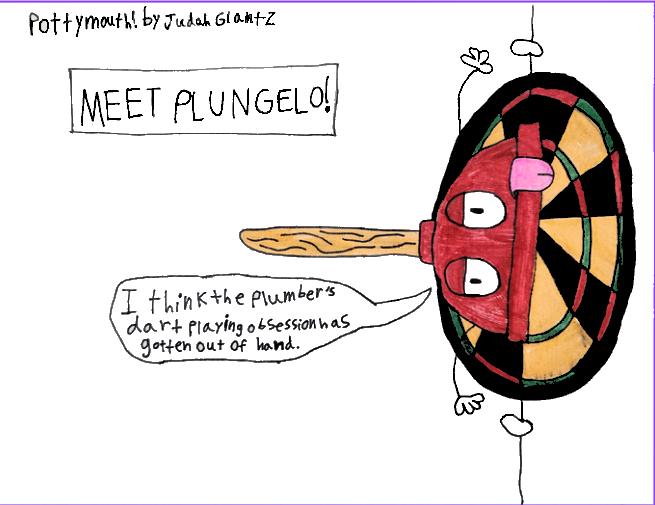Pebbles and dirt scatter as the horses and carriage come to a sharp halt. I take a deep breath, get out of my seat, and open the door. The Wisconsin winter air immediately clears my lungs of the more comfortable carriage warmth. I nearly choke on the thickness of it.
I reach back into the cabin and grab my small suitcase, then close the door shut. Making my way to the coachman in the front, I notice the beauty of the farm. Small fields of crops engulf the surrounding area, being cut off by a line of large pine trees that gives way to a massive forest. A wonderfully sized house lies in the center of it all, with a small garden behind it, and what looks to be a barn in the nearby distance.
“Yer moneys worth,” I say as I reach the coachman. He smiles through his thick white beard and snatches the coins and dollar bills from my hand.
“We all need that in a time like this,” he responds. I nod my head in agreement. “Giddyup,” he adds as his two horses whine and turn around, leaving me alone with my thoughts.
I turn around and focus on the house. It’s a beautiful structure, standing at an impressive two stories high. It’s nice and wide, with a chimney and all. I can’t believe this is where I’ll be staying.
As I climb the steps to the front porch, I can hear children indistinctly yelling inside. I walk over to the front door, which is decorated with tinted pink and yellow windows. I nervously ball my hand and knock on it. Everything goes silent. For a moment, it seems as if the entire globe has stopped turning. Then, a hunk of a man walks over to the door, and opens it.
The man is completely menacing. He stands over me like a cat to a mouse, and it occurs to me that he could beat me close to death with his pinky finger. He wears a bright red flannel and large overalls, along with a black checkered fleece hat to match his shirt.
But the tension is shattered when two little boys and a small girl emerge from behind him, laughing joyfully. “Uncle Joseph,” they cry with an emphatic tone. The man chuckles as they all hug my knees, the only area they can reach.
“Joseph?” a woman’s voice fills my ears as I look up to see my sister standing beside the man. A sense of relief washes over me as I feel the relief of a blood relative’s presence, a luxury I haven’t had in almost 3 months. “Come in, come in, you must be half-frozen by now,” she adds.
I nod shyly and pick up my suitcase, squeezing past the giant and into the front hall. It’s a rather expansive room, with stairs leading up to the second floor, a hallway leading to the kitchen, along with the dining room resting to its right.
“This house is the true embodiment of the dream for which I came seeking,” I think to myself as the family leads me to the kitchen.
The children swarm me with questions of Ireland and my travel story as we enter the kitchen, so much that it’s hard to answer one without another kid interrupting with their own unique question.
“Settle down, ya’ rascals,” the man laughs. His laughter is an earth-shaking bellow, but it’s laced with a considerable comfort and sincerity.
My sister pulls up two chairs to the kitchen table, inviting me to sit. I plunk down onto the rickety old thing that had grown dark in its likely large age. “Caleb, can you take the children out to play? I want to have a chat with my brother,” she asks the big man.
“Sure, honey. Kids, c’mon were going outside,” he herds the group of youngsters. They whine in protest, but he silences the backlash with and assures them that they can speak to me later.
After the children leave, she looks at me with a long stare that can be determined as a mix of nostalgia and slight tragedy. “Good lord, brother, how long has it been?” she says, finally breaks the silence.
I ponder the question for a bit, before answering, “well, uh, Ma told me that I last saw you when I was still a babe. So…twenty-years, I reckon.”
She laughs. “That old woman’s still hanging about, is she? I remember when she scolded me and Rose back in the day,” she recalls.
“Oh, hardly,” I quip. “I apologize, but it feels like I know you only loosely. Ma spoke of you and Rose plenty, but you seem more like a fable tale than an actual person,” I confessed.
A sad smile crept across her face. “Yeah, you were so young when the family split. It was a travesty, y’know? And then Ma took Bridget when she became sick of the Americas, and it was just me and your older sister, all on our own,” she said. “How is Bridget, by the way? I can barely remember her face,” she asks.
“Yeah, she married a pub owner in the north. I haven’t seen her in years,” I respond. An awkward silence ensues, both of us unable to think of what to say. I fidget with my glasses a bit, which seems to remind her of a question.
“I remember you had that Trachoma, Ma said that you had to get surgery. I can’t imagine,” she says.
“I was too little to remember, but Ma cobbled up enough of Pa’s salary to pay for it. They scraped the darn thing clean off my eyes, but it got a bit messy, hence these,” I motion to my glasses. “I might as well need a cane and an aid without them,” I joke. “If you don’t mind me asking, how did you get here? What’s the story? What happened to you both?” I pry a bit.
“Oh, if it ain’t the classic American Dream and a bit of luck that led my way here,” a bright smile comes to her face. “When you and Pa left, the rest of us went to stay at Uncle Patrick’s. They weren’t in the friendliest moods, though, and we got kicked out after I beat up one of their bratty little daughters, whom I truly can’t even remember the name of, come to think of it. After that, Ma took Bridget home in a frenzy. It was just me and Rose. Two girls against the world. We rented an apartment with some Jewish man and his daughter after Rose got a job making’ paper flowers. It stayed like that for a bit, until some…incident happened at Rose’s job. She quit shortly after. They never told me what actually conspired. Luckily, Gussie, the man’s daughter, worked at a factory near there. The Triangle Shirtwaist Factory,” she spits out the name of the place with such hate, and I know exactly why.
I let out a sigh. “I heard about what happened there, such a tragedy,” I said softly. Ma and Pa told me much later about what actually happened at the place, as I was so young when the massacre occurred.
“I was at the top floor when it first started,” she says. “Some young men from the nearby building helped us across with ladders,” she adds. “Rose nearly lost her life in the blaze. She had to jump through the elevator shaft to escape, and she suffered some wicked burns to her legs. Gussie wasn’t so lucky, though. We found her at a morgue later that night,” she winces at the painful memory, and some tears start to form, but she holds herself together.
“It’s alright, it’s ok,” I comfort her. Even now, so many years after the event, it still brings her to tears. That says something alright.
“After that, the father left, and we returned to Uncle Patrick, where we stayed for a while. I went to school until I was about 16, Rose forced me, although I thank her endlessly for it. It’s where I met Caleb. After high school, I worked as a school receptionist. He got a job as a glass maker. After a few years, we decided to leave the city and buy some land out here for a relatively cheap price. Now we sell the bounty of our farm’s cattle and crops to the local town just south of here, Quil,” she explains. She continues, “You passed through it, no?”
“Yes, it’s where I rented the carriage. I had taken a bus from the city, but it stopped there,” I answer. She chuckles and shakes her head.
“Yeah, we do live a bit on the edge of the world,” she jokes. “Anyway, after the crash, things got tougher. We haven’t made much money from the town, as they’re struggling to bring in taxes, which means they buy less crops. We also had to fire our farm hands, so it’s just us now. And Joseph, thank you so much for volunteering to move all the way out to America to keep us assisting around the farm, we can’t thank you enough,” a grateful look comes across her face.
“Oh, no problem at all. I figured this was my great opportunity to come to America. I always wanted to immigrate from Ireland. I just didn’t want to move in a time like this, but when you inquired about my availability to Ma in the letters, it occurred to me that this was the best time. Prices are cheap, not many other immigrants, I’m still young, y’know?” I delineate.
“Yes of course,” she understands.
“I was wondering, you told Ma that Rose still works in the city and is prominent is some kind of union, what’s that all about,” I wonder.
The smile instantly disintegrates off Maureen’s face, and is replaced by a cold thousand yard stare. “Yes, I told Ma a great deal of things,” she says in a mystic tone. “Joseph, I haven’t been totally honest with you and the rest of our Irish relatives. The truth is, Rose really did become a great figure in a local union. After the fires, she became an outgoing voice in the community, participating in protests and all the rest. But…a few years back, she went to the doctor with breathing problems. They found she had cancer in her lungs, pretty bad. I went to visit, but she was gone within about six months. It was possibly the worst experience in my life,” she chokes back a tear. “I still think that it had something to do with how long she was in the inferno downstairs, something I wasn’t exposed to,” she sighs and slinks back into her chair.
My head throbbed. A few years ago? Ma had told me all about Rose, how I needed to say hello for her when I could, how I could visit her from the farm. A sinkhole had opened in my mind. Strangely, I didn’t feel much grief, I hardly knew the women, but perhaps my carefully set mental reality of two sisters in the promised land being shattered pushed me even further out of my comfort zone.
“She was a local hero, I never lied about that. I just couldn’t bring myself to tell Ma her oldest child had passed. So I’m letting her live a bit of a fantasy. What the eyes don’t see, the heart won’t feel,” she says.
I let out an audible sigh. “That’s a bit twisted, but I understand. It’s alright. I have you and your family to stay with, the earth won’t end,” I decide.
“That’s right,” she agrees. “Let’s not dwell on it. Back to business, until the economy recovers, you will need to work around the farm. Pick the strawberries, help Caleb with the crops, feed, herd, breed, and butcher the cattle. As the children age, they will assist as well. In exchange, you’ll be given a warm room, food, and a loving family. After that, I wish you luck Joseph,” she says seriously.
A smirk comes across my face as I lean back into my chair. This is America, the land of the free and brave, a land of wealth and opportunity. I’m ready.








